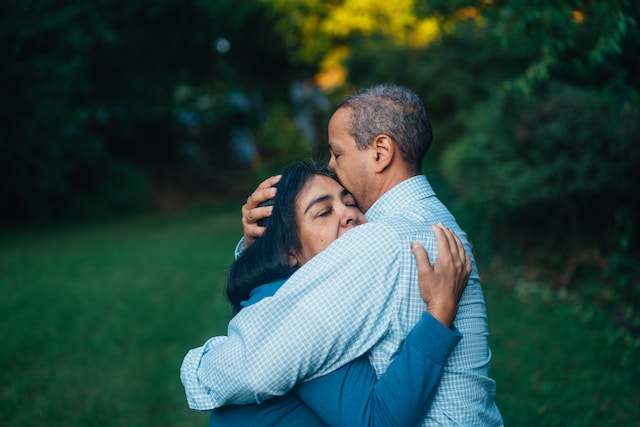In the intricate tapestry of human relationships, forgiveness emerges as a vital thread that weaves together the fabric of love, trust, and understanding. Whether it be between partners, friends, or family members, the ability to forgive plays a pivotal role in repairing and strengthening bonds. Let us delve into the importance of forgiveness in relationships
In the intricate tapestry of human relationships, forgiveness emerges as a vital thread that weaves together the fabric of love, trust, and understanding. Whether it be between partners, friends, or family members, the ability to forgive plays a pivotal role in repairing and strengthening bonds. Let us delve into the importance of forgiveness in relationships and explore ways to cultivate a forgiving mindset.
At the heart of forgiveness lies the recognition of our shared imperfections and the acknowledgment that conflicts and hurt are an inevitable part of any relationship. When we hold onto grudges and resentments, they act as barriers that impede communication, hinder emotional connection, and erode the foundation of trust. However, forgiveness offers a path to healing, growth, and the restoration of harmony within relationships.
Forgiveness allows us to break the cycle of blame and retaliation. It is a conscious choice to let go of past transgressions, release the negative emotions associated with them, and open ourselves up to vulnerability. By extending forgiveness, we create an environment that encourages open dialogue, empathy, and understanding.
One of the key aspects of forgiveness in relationships is the ability to empathize with the perspective of the other person. It involves putting ourselves in their shoes, striving to understand their intentions, and recognizing their capacity for growth and change. By practicing empathy, we cultivate compassion and foster a deeper sense of connection.
However, forgiveness is not a one-time event; it is an ongoing process that requires effort and commitment from both parties involved. It involves honest communication, active listening, and a willingness to address the underlying issues that led to the conflict. Through this process, we can build stronger foundations of trust, intimacy, and emotional safety.
It is crucial to acknowledge that forgiveness does not mean forgetting or minimizing the pain caused. It does not imply condoning harmful behavior or accepting mistreatment. Instead, forgiveness allows us to take control of our emotional well-being and make a conscious choice to move forward, setting boundaries when necessary.
In cultivating forgiveness, it is important to practice self-forgiveness as well. Often, we hold onto guilt, shame, or regret, which can strain our relationships. By extending forgiveness to ourselves, we acknowledge our own fallibility and embrace the opportunity for personal growth. Self-forgiveness empowers us to let go of self-blame, heal emotional wounds, and cultivate healthier connections with others.
Building a forgiving mindset requires patience, understanding, and a commitment to personal growth. It involves letting go of the need for revenge, embracing vulnerability, and focusing on the future rather than dwelling on past grievances. Seeking support from couples’ therapy, relationship counselors, or support groups can provide valuable guidance and tools for navigating the complexities of forgiveness in relationships.
The importance of forgiveness extends beyond individual relationships; it also has wider societal implications. In a world often marred by conflict and division, forgiveness acts as a catalyst for healing and reconciliation. By practicing forgiveness within our relationships, we contribute to a more compassionate and empathetic society, fostering peace and understanding on a larger scale.
In conclusion, forgiveness is an essential ingredient for repairing and strengthening relationships. It holds the power to heal emotional wounds, foster empathy and understanding, and build a foundation of trust. Through forgiveness, we create space for growth, nurture deeper connections, and pave the way for a more harmonious and fulfilling relational experience.
So, let us embrace the importance of forgiveness in relationships, and strive to cultivate a forgiving mindset. By choosing forgiveness, we unlock the potential for transformative growth and create relationships that are resilient, compassionate, and filled with love.

















Leave a Comment
Your email address will not be published. Required fields are marked with *